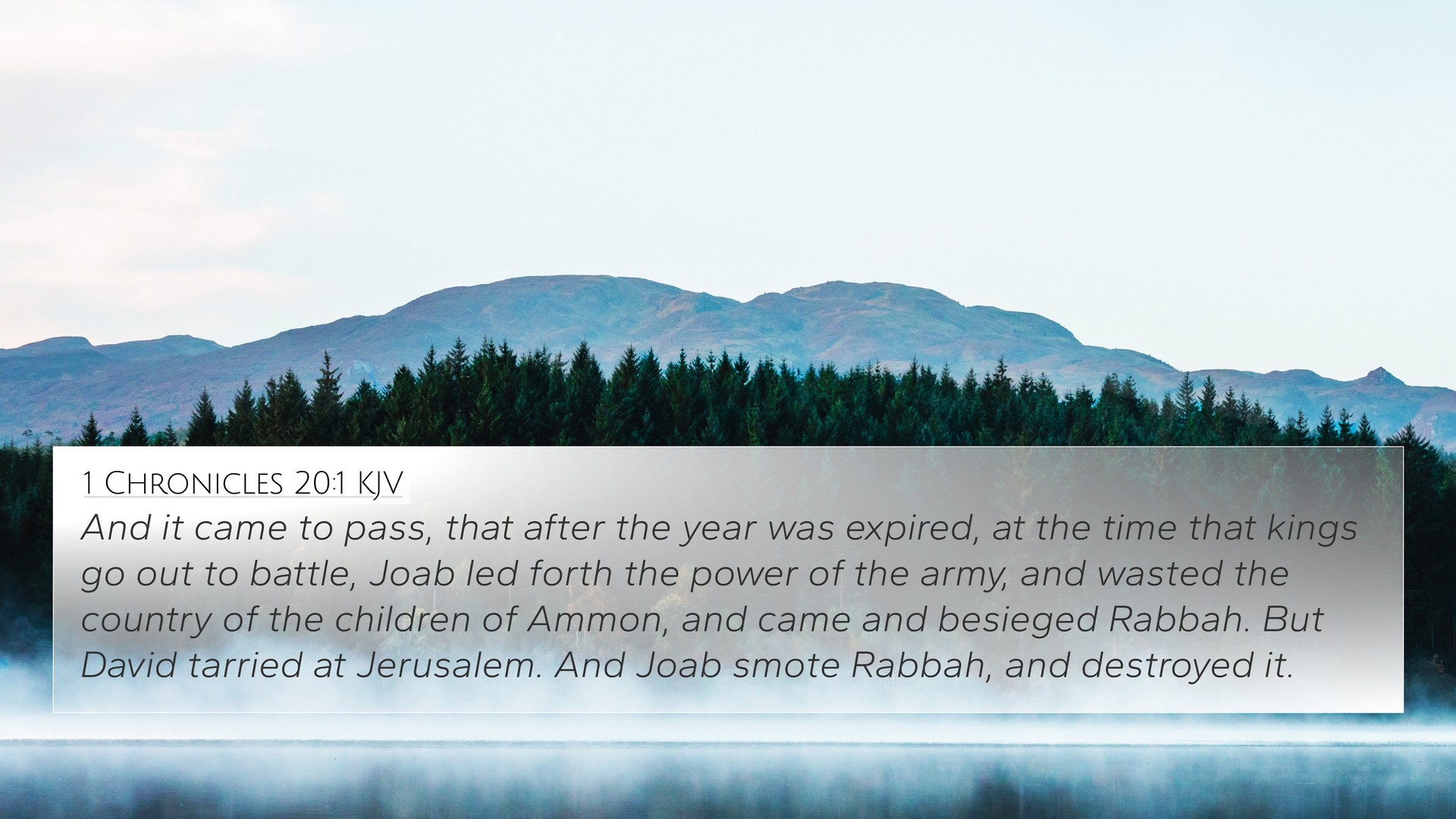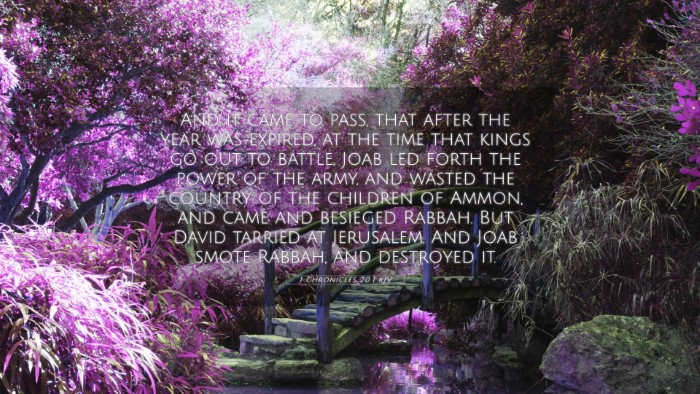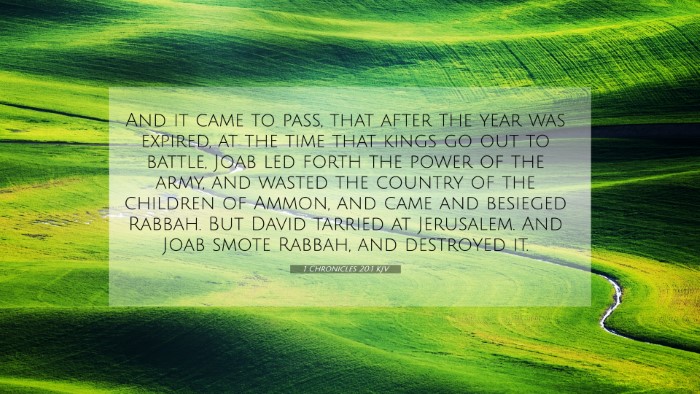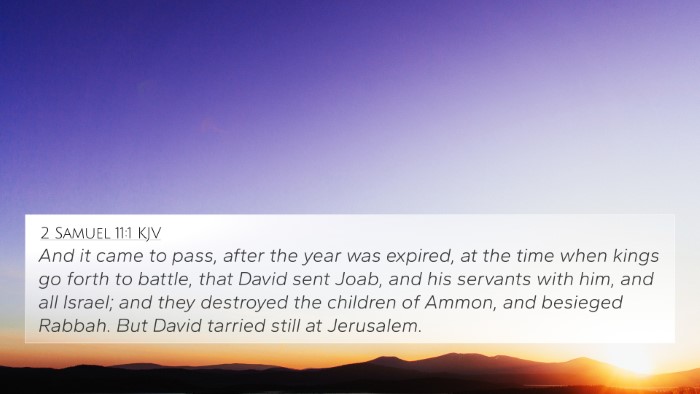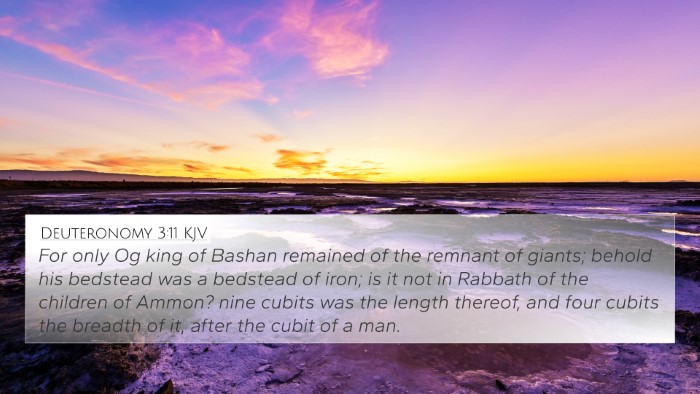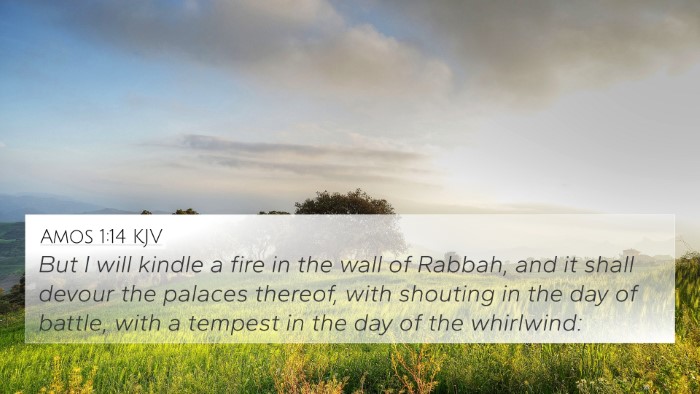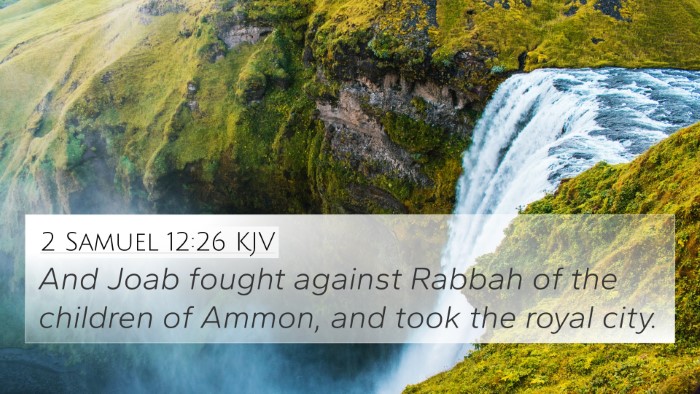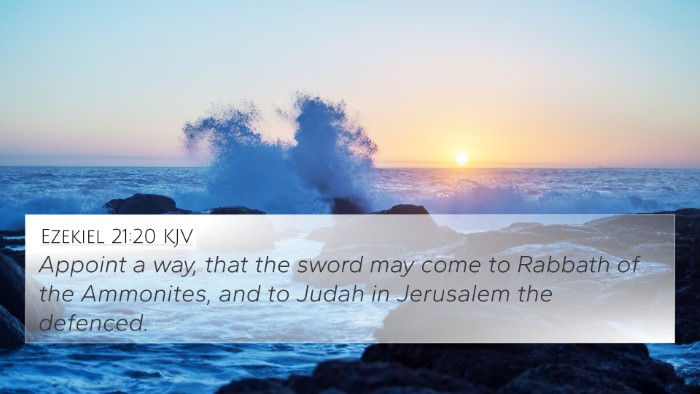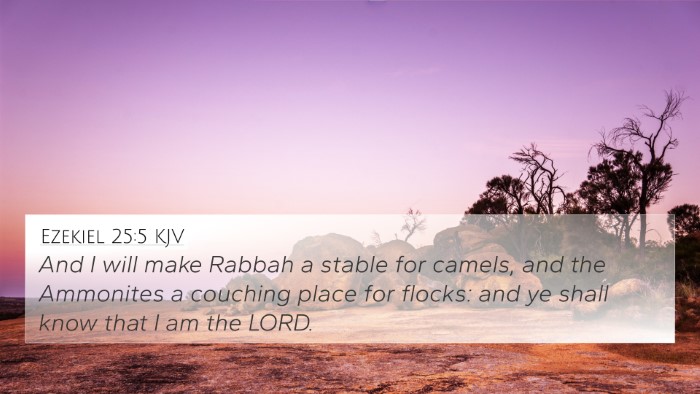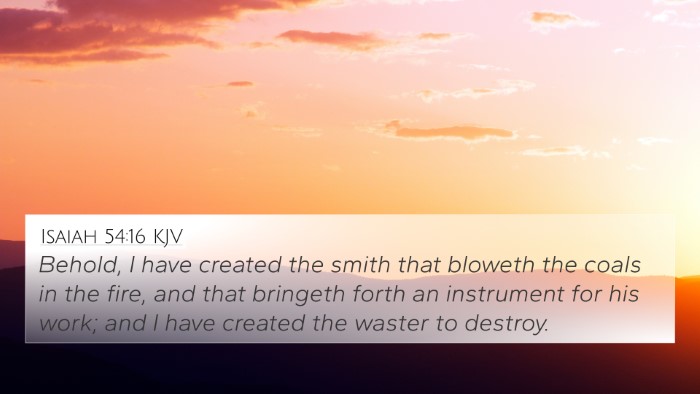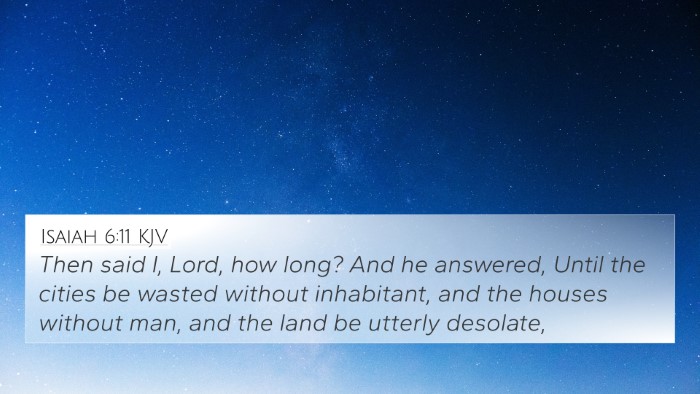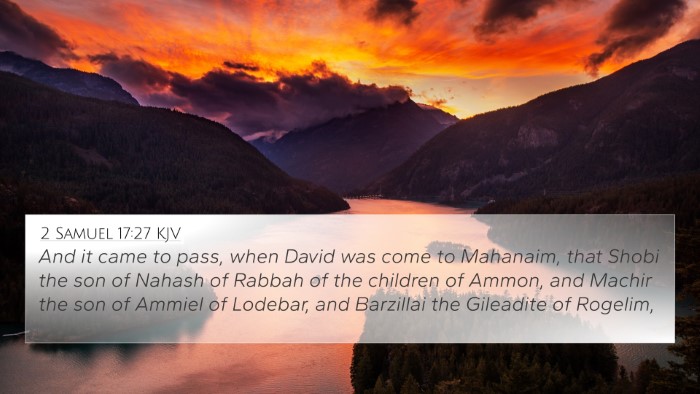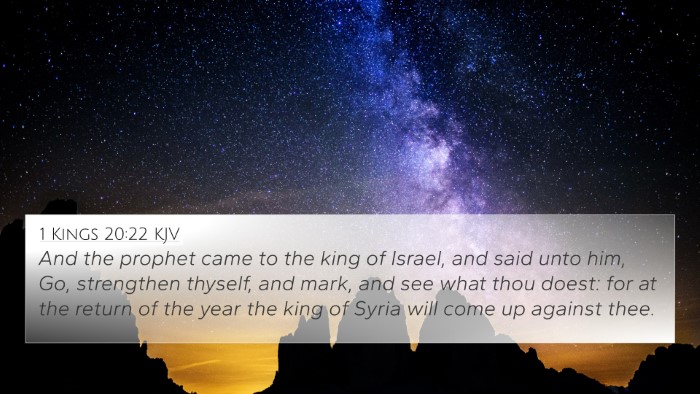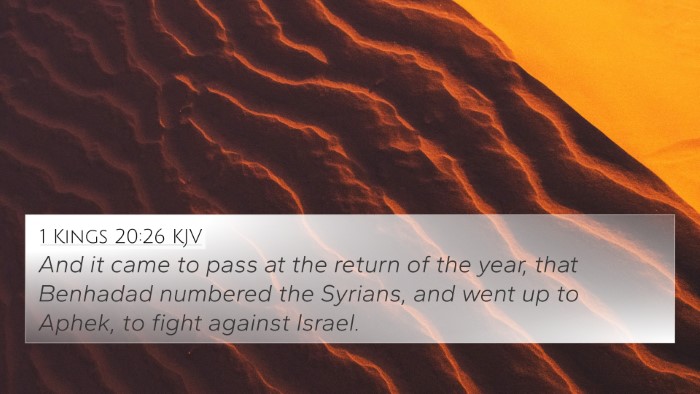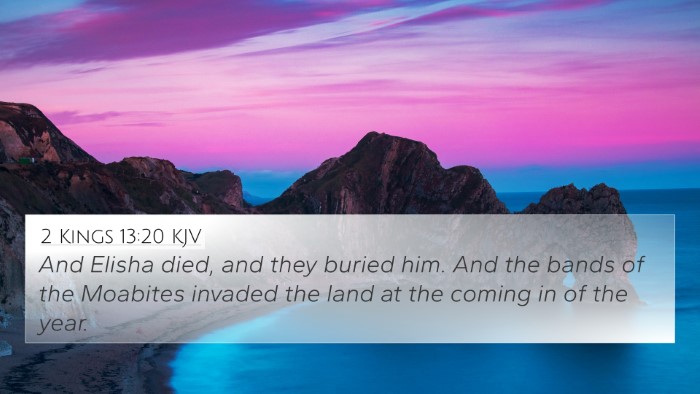Understanding 1 Chronicles 20:1
This verse offers a glimpse into the significant events in the life of David and the unfolding narrative of Israel’s history. 1 Chronicles 20:1 states: "And it came to pass, that after the year was expired, at the time that kings go out to battle, Joab led forth the power of the army, and wasted the country of the children of Ammon, and came and besieged Rabbah. But David tarried at Jerusalem. And Joab smote Rabbah, and destroyed it."
Overview and Context
In this account, we find David at a pivotal moment in his reign. The verse not only tells us about Joab's military campaign against the Ammonites but also highlights David's decision to remain in Jerusalem rather than lead his troops. This choice is laden with implications for both David's kingship and the overarching narrative of his life.
Commentary Insights
Matthew Henry's Commentary
Matthew Henry notes that the timing of Joab's campaign coincided with the season when kings were expected to be in battle. David's decision to stay behind signifies a moment of moral and spiritual caution. The commentary also emphasizes how Joab's leadership reflects the military genius that empowered the Israelites during their conquests.
Albert Barnes' Notes
Albert Barnes offers additional insight into the sociopolitical landscape. He highlights the significance of Joab’s actions as pivotal to Israel’s expansion. Barnes suggests that David's absence might hint at a later downfall, pointing to the tragic events that followed, such as the incident with Bathsheba, which began during a time when kings were supposed to be at war.
Adam Clarke's Commentary
Adam Clarke elaborates on Joab's strategic military pursuits and the fortune of Israel’s army under his command. Clarke underscores the tragic irony of David's choice to remain behind, which contrasts with the traditional view of a king leading his men into battle. This decision foreshadows complications in David’s reign and moral standing.
Biblical Cross-References
This verse is interconnected with several other scripture passages that help deepen the understanding of its importance:
- 2 Samuel 11:1 - Provides context into David's distractions while his army is in battle.
- 2 Samuel 12:9 - Chronicles the consequences of David's inactions that lead to significant moral failings.
- 1 Samuel 8:20 - Illustrates the intention of Israel's desire for a king who goes before them in battle.
- 1 Chronicles 18:1 - Details David’s military achievements, connecting back to this moment of his reign.
- Psalm 144:1 - Highlights David's role as a warrior king ordained by God.
- Deuteronomy 20:1 - Discusses the duty of a king to lead the people in warfare.
- 1 Chronicles 21:1 - Further illustrates divine intervention and the consequences of David's decisions.
Thematic Connections
This verse offers thematic connections that resonate throughout the scriptures, especially regarding the responsibilities of leadership, the risks of complacency, and the implications of moral failure. The following themes resonate with this narrative:
- Leadership and Responsibility - Highlights the importance of a leader’s presence in times of war.
- Moral Choices - Illustrates the struggles of maintaining moral integrity as a ruler.
- Consequences of Inaction - Points to the potential dangers that arise when leaders abdicate responsibilities.
- Divine Sovereignty - Shows how God’s plans can unfold even through human decisions and failings.
Conclusion
In conclusion, 1 Chronicles 20:1 serves as a significant marker in understanding the complex dynamics of David's reign. By engaging with the commentaries of Matthew Henry, Albert Barnes, and Adam Clarke, alongside relevant cross-references, audiences can delve deeper into the biblical narrative and its implications for personal and corporate leadership today. This reflective examination fosters a greater appreciation for the interconnectedness of scripture and the lessons it holds for contemporary believers.
